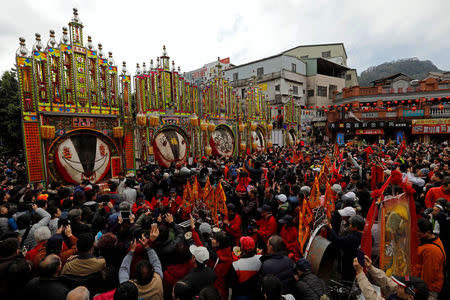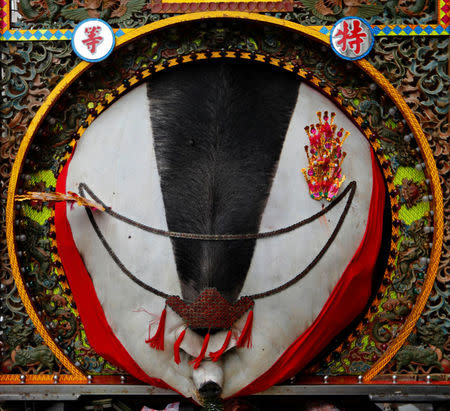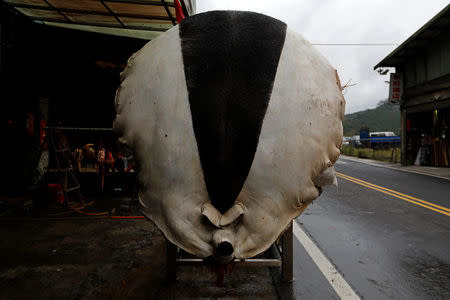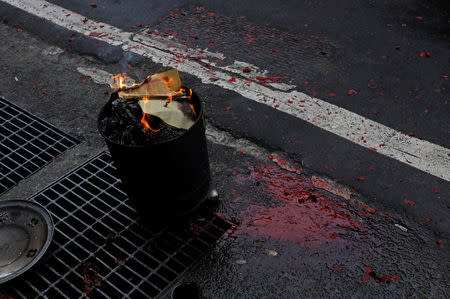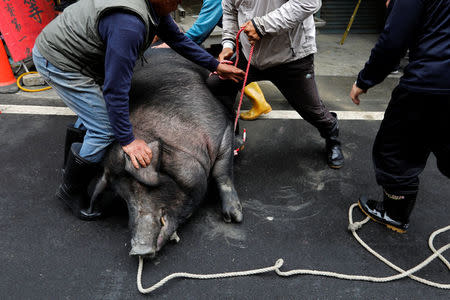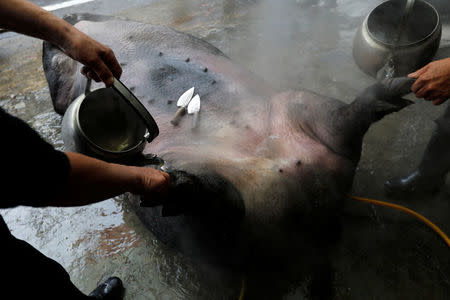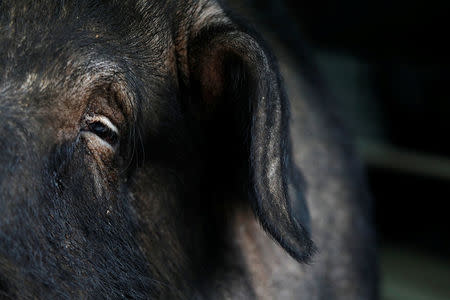Taiwan's 'holy pig' festival cruel, says rights group
SANXIA, Taiwan (Reuters) - The winner of Taiwan's "holy pig" ceremony on Thursday defended the lunar new year tradition against critics who argue the fattened animals are raised under cruel conditions. The ceremony harkens back to a time when early Chinese settlers to Taiwan used to pray to mountain gods and local deities for protection against wild animals and other threats. Each new year, the fattened pigs are slaughtered and the carcasses decorated and paraded through the streets of Sanxia, a traditional district in northern Taiwan, to the temple. The owner of the biggest pig wins the competition and with it an auspicious sign that the year to come will be a lucky one. "This is a custom at our Tzu Shih Yeh (founder ancestor) temple in Sanxia. We cannot abolish this tradition," said Liu Ching-sheng, owner of this year's winning pig. Animal protection groups say the process of fattening the animals -- a pig raised for the ceremony can weigh more than 800 kg (1763 lbs) compared to a normal weight of 120 kg -- is cruel. "Just like for us humans, obesity in animals is a disease," Chen Yu-min, director of the Environment and Animal Society of Taiwan, told Reuters Television. She said the pigs' movements are restricted while they are fattened and the additional weight puts a strain on their internal organs. "In addition to the inhumane process of fattening is the last moment when they are about to be slaughtered. This moment is actually very cruel and inhumane," she said. (Reporting by Fabian Hamacher and Damon Lin, editing by Darren Schuettler and Pritha Sarkar)

 Yahoo News
Yahoo News 